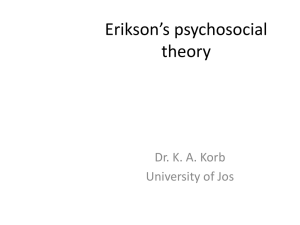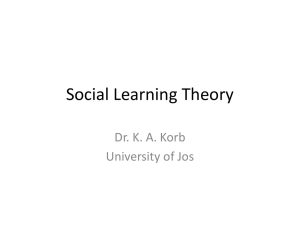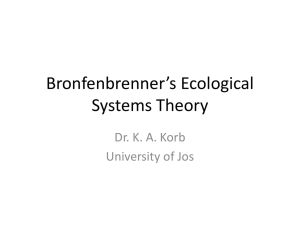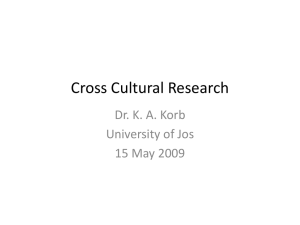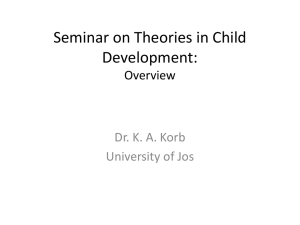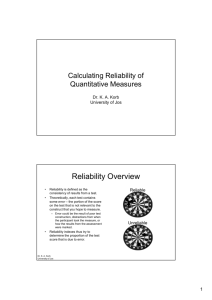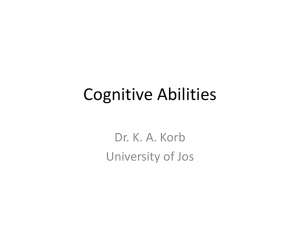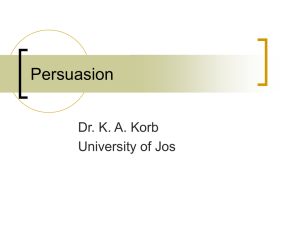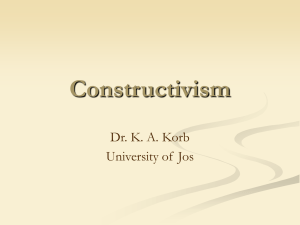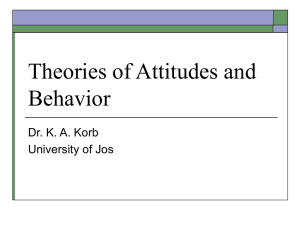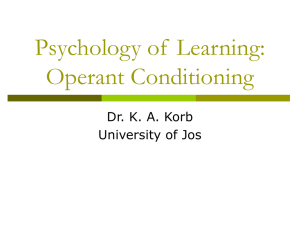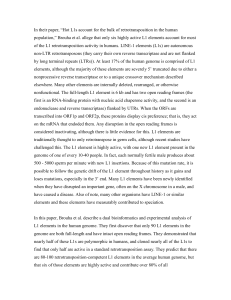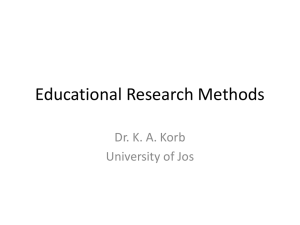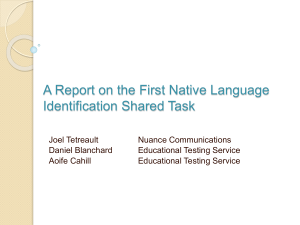Maturation and Development
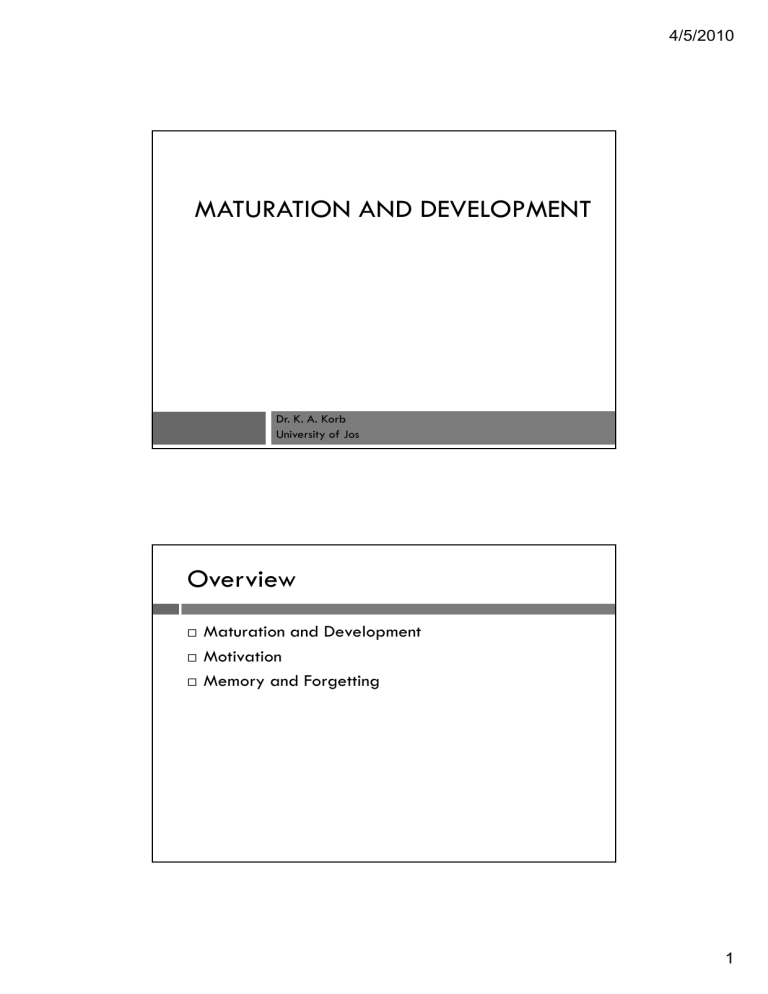
MATURATION AND DEVELOPMENT
Dr. K. A. Korb
University of Jos
Overview
Maturation and Development
Motivation
Memory and Forgetting
4/5/2010
1
Learning Goals
Differentiate between Maturation and Development
Understand basic principles of physical, social, and intellectual development so you can teach in a way that supports students’ development.
4/5/2010
Maturation and Development
Maturation: Genetically programmed, naturally occurring changes over time
Development: Changes that occur over time as the result of maturation and environmental supports
Types:
Physical
Social
Intellectual
The purpose of education is to provide an environment that will support students’ development
2
4/5/2010
Dr. K. A. Korb
University of Jos
Development
Dr. K. A. Korb
University of Jos
Development Observations
Individuals develop at different rates
Age does NOT determine a child’s development
Development is orderly
New skills and abilities build on already known skills and abilities
Teachers CANNOT expect students to learn something if they have not mastered prerequisite skills
Development takes place gradually
Parents and teachers have to be patient with pupils
3
Dr. K. A. Korb
University of Jos
Types of Development:
Physical Maturation
Gross motor skills: Large movements
Lay, Crawl, Walk, Run
Fine motor skills: Coordination of small muscle movements
Writing
Drawing
4/5/2010
Dr. K. A. Korb
University of Jos
Supporting Physical Development
Provide proper nutrition
Children with proper nutrition:
Have more energy
More eager to explore new environments
More alert
Provide adequate healthcare
Provide opportunities for children to be active and practice fine motor skills
4
Dr. K. A. Korb
University of Jos
Types of Development: Social
Erikson’s Stages of Psychosocial Development: Each stage is characterized by a crisis
Crisis: a social challenge that presents opportunities for development
Positive resolution of the crisis leads to growth but negative resolution (or no resolution) leads to poor adjustment
4/5/2010
Dr. K. A. Korb
University of Jos Erikson’s Stages of
Psychosocial Development
5
Stage 1:
Trust vs. Mistrust
Age: 0-1 years
Primary Event: Feeding
Newborns cannot meet their own needs
Have to trust that their mother meets their needs
Positive Resolution: Trust in the world based on basic needs being met
Parents’ Role: Provide warmth and responsiveness to child’s needs to foster a secure attachment
Dr. K. A. Korb
University of Jos
Stage 4:
Industry vs. Inferiority
Age: 6-11 years
Primary Event: School
Industry: Doing things that others in society value
Successful experiences give sense of industry, competence, and mastery
Unsuccessful experiences leads to feelings of inadequacy, inferiority, and no self-worth
Positive Resolution: Productive work and understanding of progress
Parents’ and Teachers’ Role: Help pupils successfully participate in activities
Dr. K. A. Korb
University of Jos
4/5/2010
6
Stage 5:
Identity vs. Role Confusion
Age: 12-20 years
Primary Event: Peer Relationships
Identity: Integrated sense of self
Answering: Who am I?
Integrate beliefs in career, religion, politics, life purpose, family, etc.
Identity crisis is the most significant conflict
Role confusion: Unable to integrate beliefs, leaving a split personality
Positive Resolution: Strong sense of identity and plans for the future
Parents’ and Teachers’ Role: Help the pupil learn about options for their identity
Dr. K. A. Korb
University of Jos
James Marcia’s Identity States
Searching for Identity?
Yes
No
Committed to Identity?
Yes
Identity
Achievement*
Identity
Foreclosure
No
Identity
Moratorium
Identity
Diffusion
Dr. K. A. Korb
University of Jos
4/5/2010
7
Dr. K. A. Korb
University of Jos
Supporting Social Development
Be aware of the crisis that your students are facing
Encourage your students toward a positive resolution of the crisis
Industry vs. Inferiority: Provide support and encouragement so students are successful in learning
Identity vs. Role Confusion: Provide opportunities for students to learn about potential careers
Help students think about how what they are learning relates to their beliefs
Dr. K. A. Korb
University of Jos
Types of Development: Intellectual
Piaget’s Stages of Development
Estimated
Age**
(in years)
Sensorimotor 0-2
Pre-Operational 2-7
Concrete
Operations
7-11
Formal Operations 11+
Key Characteristic
Thinks through senses
Can use mental symbols; thinks in only one direction
Can perform mental actions on objects if the objects are present
Thinks abstractly
4/5/2010
8
Dr. K. A. Korb
University of Jos
Sensorimotor Stage
Sensorimotor: Understand the environment from physical actions
Infants initially interact with the environment through their five senses
4/5/2010
Dr. K. A. Korb
University of Jos
Pre-Operational Stage
Pre-Operations: Use symbols to represent objects and events
Mental symbols: Words, numbers, imagination
Thinks in one dimension: Focus only on one dimension of a problem
9
Dr. K. A. Korb
University of Jos
Pre-Operational Stage
4/5/2010
Dr. K. A. Korb
University of Jos
Concrete Operational Stage
Mental operation: Mental action on an object or event
Mathematical operations, science experiments
Concrete Operations: Perform mental operations on concrete objects
Conservation: Physical properties of an object stay the same despite superficial changes in appearance
Students must successfully solve the conservation tasks to be in the concrete operations stage
10
Dr. K. A. Korb
University of Jos
Formal Operational Stage
Formal operations: Mental operations are not limited to concrete objects
Pupils can think abstractly about objects or events that have not happened
What would have happened if the British had not colonized
Nigeria?
Pupils can plan a systematic approach to solving a problem
Why is the motorbike not working?
4/5/2010
Dr. K. A. Korb
University of Jos
Piaget’s Stages of Development
Piaget believed that teachers can learn as much from students’ incorrect answers as from their correct answers
19
+ 32
41
11
Dr. K. A. Korb
University of Jos
Supporting Intellectual Development
Match teaching strategies to students’ cognitive stage
Concrete Operational: Provide concrete objects for students to learn from
Formal Operations: Ask students deep questions to think about the lesson at hand
Teach students how to engage in logical thinking
At all levels of teaching, provide concrete examples to represent difficult concepts
Tell stories to demonstrate concepts
Use analogies
Ask students for their relevant experiences
Ask students questions beyond what you have directly taught to develop logical thinking
Dr. K. A. Korb
University of Jos
Revision
What is the difference between maturation and development?
How can you support your students’ social development? (Erikson’s theory)
Describe Piaget’s four stages of cognitive development.
What are strategies that you can use to support your students’ intellectual development?
4/5/2010
12
